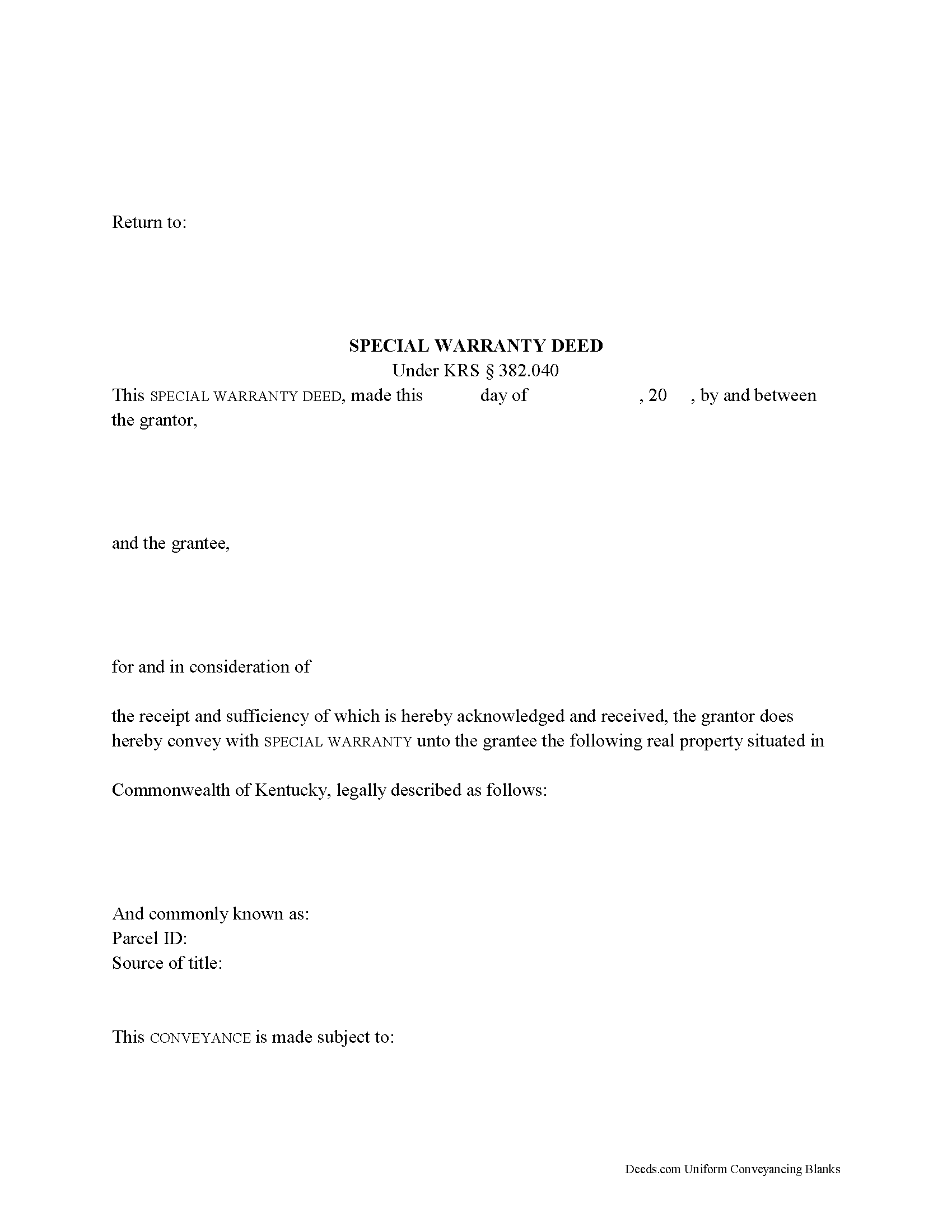Download Kentucky Special Warranty Deed Legal Forms

Kentucky Special Warranty Deed Overview

Real property conveyances are governed by Chapter 382 of the Kentucky Revised Statutes.
Special warranty deeds are statutory under KRS 382.040 and transfer ownership of real property from the grantor (the seller) to the grantee (the buyer) with limited warranties of title. They provide guarantees that the grantor is the true owner of the property, has the legal right to convey it, and will defend the title against any claims originating from the time they owned the property. However, the grantor does not guarantee that there are no other title defects before they owned it, so this type of deed offers more protection for the grantor, and less for the grantee.
A lawful special warranty deed includes the names and addresses of each grantor and grantee. Kentucky requires all recorded documents or documents affecting a change in property ownership to contain information on how the grantee will hold title. For residential property, the primary methods for holding title in co-ownership are tenancy in common, joint tenancy, and tenancy by entirety. A grant of ownership of real estate to two or more persons creates a tenancy in common, unless otherwise specified. Tenancy by entirety is a vesting option available to married couples only (KRS 381.050(1)).
Provide a complete legal description of the property and the source of the current grantor's title. The deed must also include the preparer's name, address, and signature (KRS 382.335), and the in-care-of tax address (KRS 382.110(2)). State law also stipulates either listing the full amount of consideration exchanged for the transfer, or, if nominal or no consideration has been exchanged, the fair cash value of the property (KRS 385.135). The county assesses a transfer tax on the consideration, due at the time of recording, unless the transaction is exempt under KRS 142.050.
Finally, the form must meet all state and local standards for recorded documents, which may vary from county to county. Confirm these requirements with the local recording office.
Both the grantor and grantee must sign the deed in front of a notary for the deed to be recorded (KRS 382.130). Submit the completed deed, along with any supplemental documentation necessary for the specific transaction, to the county clerk's office of the county in which the property is situated (KRS 382.110(1)). Recording preserves the ownership history of the property and provides public notice of the transfer, which protects both the grantor and the grantee from claims based on false information.
This article is provided for informational purposes only and is not a substitute for legal advice. Contact an attorney with questions about special warranty deeds or for any other issues related to the transfer of real property in Kentucky.
(Kentucky Special Warranty Deed Package includes form, guidelines, and completed example)